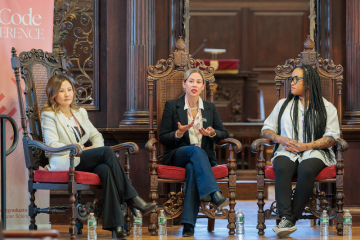by Brian C. Castrucci
There’s lots of attention right now on the future of health insurance coverage in America. Just try to turn on the television without hearing the words “repeal and replace” or “save the ACA.” The attention is warranted. More Americans have health insurance today than anytime in recorded history and public support for the ACA is the highest it has been in the past seven years. Its impact can be seen in the many stories lighting up social media and shared at town halls across the country about those who have received necessary treatments and life-saving procedures that were otherwise unavailable to them without healthcare coverage. However, these stories also remind us that healthcare is primarily about treating illness, which is very different from ensuring a healthy nation. One elected official went as far as saying that repealing the ACA has the potential to “make America sick again,” implying that the ACA made America well. But, let’s be clear: simply expanding health insurance coverage can’t and didn’t ever make America well.
In the United States, our primary challenge isn’t battling bugs and bacteria. Instead, chronic diseases are the leading cause of early death and account for 86 percent of our nation’s health care costs. What accounted for only about 20 percent of deaths in 1900 has quadrupled by the end of the 20th century. Today, more than half of the U.S. population has a chronic disease and more than 25 million Americans suffer from five or more chronic conditions.
Yes, more people have access to healthcare. But that hasn’t slowed or stopped the millions of Americans each year who are newly diagnosed with a chronic condition. It’s like over half of the U.S. population receive lifetime membership to a new club—a club no one ever wants to join— where dues are an endless cycle of office visits, tests, co-pays, and prescriptions with no way out. While the ACA may subsidize the cost of admission, it does little to stem the tide of ever-increasing membership.
America is dealing with diseases that have more to do with our ZIP codes than our genetic codes, but we still look to healthcare to solve these problems. For example, this past September, Dr. Bruce Y. Lee of the Global Obesity Prevention Center at Johns Hopkins argued that the healthcare system perpetuates the obesity epidemic because reimbursement systems fail to incentivize prevention and control, that healthcare professionals don’t have enough knowledge or training to tackle obesity, and that physicians aren’t sufficiently engaged in building infrastructures for healthier living. In his eyes, obesity is a “national problem [that] is not being met with a commensurate response from the medical and health care community.” But, even if we had all of the things Dr. Lee identified, obesity is not uniquely a medical problem.
Doctors didn’t make corn syrup cheap. Hospitals don’t decide where fast food restaurants open nor can they require developers to include green space in their plans. Nurses don’t adjudicate whether people can afford a decent home. No, this is not healthcare’s problem. Our nation’s ailing health—which recently manifested itself in the first decline in U.S. life expectancy in more than a decade—isn’t something a prescription or doctor’s visit can fix.
Tackling the problem of chronic disease will require a seismic shift away from traditional medicine’s focus on individual health and acute needs. We will need a healthcare system equipped with a broader focus on community health—often referred to as population health. In making this shift, healthcare providers will have an impactful, though different, role. It doesn’t mean doctors, nurses, and medical professionals will be obsolete. Instead, their expertise will be combined with the expertise of partners who are just as invested in the safety, health, and well-being of every American.
America’s new prescription will be a network of good public health systems at the local, state, and national levels that meet people where they are and bring them to the state of good health we all deserve.
Chronic disease is the single greatest threat to America’s health with serious repercussions for both quality of life and our economy. Our nation’s businesses, households, and taxpayers are spending billions of dollars every year as a result– that’s money not being spent on innovation or purchasing or other ways that improve businesses and contribute to our communities’ growth.
Even if you don’t have a chronic condition or know someone with a chronic condition, if you care about job creation, educational achievement, or military defense, chronic disease is your problem. We are losing neighbors, educators, soldiers, law enforcement officers, business leaders, innovators, and artists to ailments we can no longer afford to pretend are fixable by either prescription or physician visit alone. This will continue until we pivot from our hyperfocus on healthcare to a more inclusive perspective that looks beyond coverage and toward major, bipartisan, multi-sector action. We need coordinated action to implement the necessary policies, social services, and economic structures necessary to do more than just get Americans healthcare, but to get Americans healthy.
This post first appeared in the Huffington Post.




